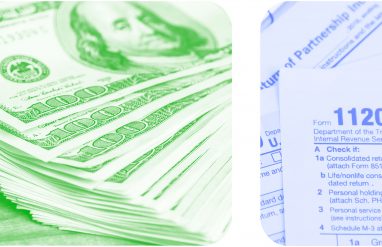Are those reins on a horse or reigns? Is it rein in or reign in? Free rein or free reign? Confusion is understandable: reign and rein are pronounced exactly the same and are almost spelled the same—except for the silent G in reign (which is a big clue, actually). And both involve control.
We’ll make it easy to tell apart rein and reign and remember which spelling to use, and we’ll even cover the other homophone rain, including the phrase rain down.
⚡️ Quick summary
Reins are the straps used to control a horse, and rein is the word used in the phrases rein in (meaning to restrain or cause to stop) and free rein (meaning complete freedom or control). Reign means to rule, especially as a king or queen, and it can also be used as a noun referring to the period during which a ruler rules.
What does rein mean?
Rein can be a noun or a verb, and it can be literal or metaphorical. Its literal sense is usually plural—reins are the straps fastened to a horse’s (or other animal’s) headgear (called a bridle). A rider typically holds one of the reins in each hand and uses them to steer the animal. Rein can be used as a verb meaning to control a horse or other animal in this way, but this is less common.
The verb phrase take the reins can be used literally, but it can also be metaphorical, meaning “to take control of something.” Most figurative senses of rein involve control in some way. To hold the reins of the company means to be the one who controls or directs it.
The common phrase free rein means “complete freedom” or “full control”—someone given free rein can do whatever they want without any interference, as in I’m giving you free rein over this project, so you have complete creative control.
The phrase rein in is most commonly used in a metaphorical way meaning “to restrain or exert control over someone or something,” such as an impulse or some kind of behavior, as in Try to rein in your sarcasm or My kids got a little wild in the restaurant so I had to rein them in.
Where does the word rein come from?
The first records of the word rein in English come from the 1300s. It comes from the Latin verb retinēre, meaning “to hold back.” When a rider wants to hold back a horse, they pull back the reins.
What does reign mean?
As a verb, reign most commonly means “to rule with sovereign power or authority, like a king or queen does,” as in Llewellyn the Great reigned over Wales. As a noun, it can refer to the period during which a sovereign rules or occupies the throne, as in The Queen’s reign lasted for decades. Sometimes, it’s used more generally to mean royal rule or authority, as in Her reign was just and fair.
Reign is sometimes extended beyond royal matters to be used in the context of a powerful person who’s being likened to a monarch, such as a CEO, as in She has reigned over this company for nearly 25 years. Sometimes, it’s used in the context of something that’s considered to be a dominating power or influence, as in The reign of video rental stores came to an end in part by the rise of streaming services.
Where does the word reign come from?
The first records of the word reign in English come from the 1200s. It comes from the Latin regnum, meaning “realm” or “reign,” from the root reg-, meaning “king,” which is where we get the word regal.
How to use rein vs. reign
The G in reign is silent, but it’s a great way to remember that reign is most commonly used in the context of regal, or royal, power (or things likened to it—like the tenure of a powerful CEO). As a verb, reign essentially means “to rule.” As a noun, it most commonly refers to the period of time during which the ruler or ruling group rules.
On the other hand (or in the other hand, as is often the case), the figurative and metaphorical senses of rein are based on its literal sense, which is usually plural and refers to the straps used to control a horse. When you rein in something, you restrain it or control it. When you have free rein, you have full and unbridled (unchecked) control or freedom.
Of course, kings, queens, and other sovereign leaders often have free rein to reign as they please. In this context, free rein typically refers to control over specific actions and rules, while reign usually involves broad authority and power.
Oh, and by the way, it’s rain down, not “reign down” or “rein down,” as in The villagers feared that the dragon would rain down fire upon them. You can remember this because rain usually involves things falling from above. The term is sometimes used without down, as in rain fire or Granddad is always raining compliments on us.
Speaking of rain, do you know the difference between weather and climate?
Examples of rein and reign used in a sentence
These sentences are good examples of how rein and reign are commonly used, both literally and figuratively.
- She gently pulled the reins to the right to steer the horse toward the right side of the path.
- We’re on a tight budget, so we really need to rein in our spending.
- By having free rein over the design, she was able to put her unique style on it, without having to compromise.
- The emperor reigned over a vast territory.
- The CEO’s brief reign over the company was marked by a steep decline in profits.














